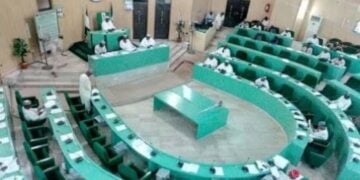The Nigerian Foreign exchange market has witnessed enhanced stability in exchange rates, largely attributed to improved supply conditions of foreign currencies, especially the USD.
This development has helped temper volatility that had previously been driven by geopolitical tensions and shifting central bank policies.
Analysts in the financial market have attributed the stability in the foreign exchange and improved liquidity to the various reforms undertaken by the Central Bank of Nigeria (CBN) as they said the value of the naira would have depreciated to below N1,700 without the reforms.
The CBN under Olayemi Cardoso had rolled out a series of sweeping foreign exchange reforms aimed at stabilising the naira, enhancing transparency, and attracting foreign investment. Key among these reforms is the unification of the multiple exchange rate windows into a single market-determined rate, to allow price discovery and curb arbitrage opportunities.
According to analysts at Cordros Research, the naira could have depreciated beyond NGN1,700 to the dollar in the absence of these reforms. In a note to investors, the analysts said “Nigeria’s open capital account exposes the naira to global financial and economic shocks.
“However, recent reforms aimed at improving the structure and transparency of the foreign exchange market, combined with a stronger external reserve position, have helped moderate the scale of volatility that might otherwise have emerged amid heightened global pressures in the first half of 2025.”
Projecting that the naira may end the year around N1,700 to the dollar, recording a modest year-to-date depreciation of 9.5 per cent, as against 45 per cent depreciation recorded in 2024, the analysts warned that in a downside scenario, including intensified global trade tensions and a drop in crude oil prices to $50 per barrel the currency could weaken further to N1,850.
The analysts noted that the CBN’s decision to allow Bureau de Change operators (BDCs) to purchase forex from authorised dealers on the Nigerian Foreign Exchange Market (NFEM) had improved market liquidity.
With net reserves stronger at $23.11 billion at the end of 2024 as against £3.99 billion which was reported at the end of 2023, the analysts note that the apex bank has greater capacity to intervene and support the naira when necessary.
To analysts at Cowry Assets Management Company, the recent strength in the local currency reflected a combination of rising forex inflows, Central Bank reforms, and targeted interventions aimed at improving the dollar. Cowry analysts say they expect the naira to “maintain its upward momentum, supported by a softer dollar on the global stage, driven by rising oil prices and the escalating tensions in the Middle East. With Nigeria’s external reserves gradually strengthening and policy signals turning more market-friendly, confidence in the local currency is steadily improving.”
Similarly, analysts at FSDH Merchant Bank noted that the naira trading within a narrower range of N1,490 to N1,667 in the first half of 2025, a marked improvement from the volatility seen in 2024. They attributed this trend to the maturation of the floating exchange rate regime under the “willing buyer, willing seller” model, which further strengthens the market-based price discovery.
FSDH analysts added that policy credibility has been instrumental in anchoring market expectations. “The gradual appreciation of the naira and the shrinking spread between official and parallel market rates reflect improved confidence in the forex market. The CBN’s forex policies and clear policy direction have reduced speculative demand, enhanced forex inflows, and weakened the incentive for rent-seeking and arbitrage.”
The analysts also pointed out that exchange rate stability has been bolstered by improved forex supply, including foreign portfolio inflows driven by attractive interest rates and recent OMO (Open Market Operations) auctions.
The improved liquidity in the forex market had also seen banks resume foreign exchange transactions on naira cards after three years. Banks in Nigeria, had previously halted international transactions due to forex shortage.
Head of Financial Institutions Ratings at Agusto & Co, Ayokunle Olubunmi had noted that the moderating premium on the parallel market transactions and the reduced arbitrage opportunities are also responsible for the decision.
Meanwhile, analysts at both FSDH and Cordros cautioned that global headwinds, including potential declines in oil prices and tightening financial conditions abroad, could still pose risks to naira stability.
“While risks remain, the CBN’s reforms and improved forex reserves have provided much-needed stability and confidence in the system. In the absence of these measures, the naira would likely have weakened well beyond current levels” analysts at Cordros stated.




